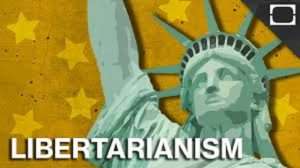The Volokh Conspiracy
Mostly law professors | Sometimes contrarian | Often libertarian | Always independent
My New Dispatch Article on Updating Libertarianism
Libertarian ideology remains generally sound. But I argue it could use a few updates.

Today, The Dispatch published my article on updating libertarian ideology. The piece was inspired, in part, by insightful articles on the same topic by Randy Barnett and Timothy Sandefur, though my take on the issue is significantly different from theirs. Here is an excerpt from my article:
In a recent essay, Georgetown Law professor and libertarian legal scholar Randy Barnett offered a provocative indictment of American libertarianism. The movement needs several updates, he argued, most notably regarding what he considers to be abuses of private power. Instead of evolving, libertarianism according to Barnett has been "frozen in amber since the 1970s."
The state of libertarian thought may seem of little importance to anyone but committed libertarians (some of whom disagreed thoughtfully with Barnett's piece). After all, libertarians are far from being a dominant force in either major political party. The Trump-era GOP has repudiated libertarian ideas it previously had some affinity for, such as promoting free trade and cutting entitlement spending. Democrats are far from libertarian as well. The idea—propounded by some conspiratorially minded people on both left and right—that libertarians secretly dominate American public policy is patently false.
Though I don't agree with most of Barnett's assessment, I do think he's right that libertarianism still needs some updates—just not the ones he proposes. Its traditional core remains valid, even more so than ever in some ways. Nevertheless, libertarianism needs a better theory of the tradeoffs between natural rights and utility; it needs better strategies to address large-scale public goods problems; and it needs to recognize that nationalism is the greatest threat to liberty in most parts of the world today.
The rest of the article outlines the three areas where updates are needed in greater detail. I also explain why I think the core of libertarianism remains sound, and why I differ with Randy Barnett's view that libertarian thought has been "frozen in amber since the 1970s." Libertarian thinkers have, in fact, made important advances since then. But there is room for further progress, particularly (though not exclusively) on the three issues I highlight.


Show Comments (9)